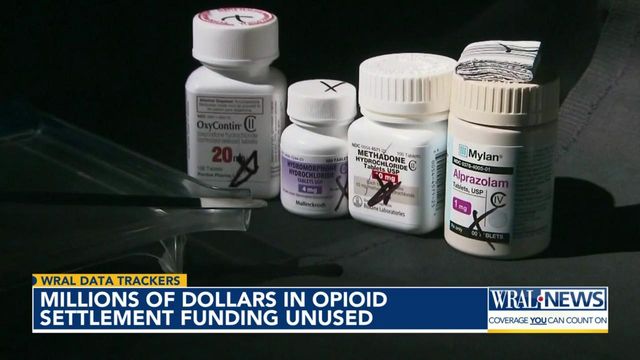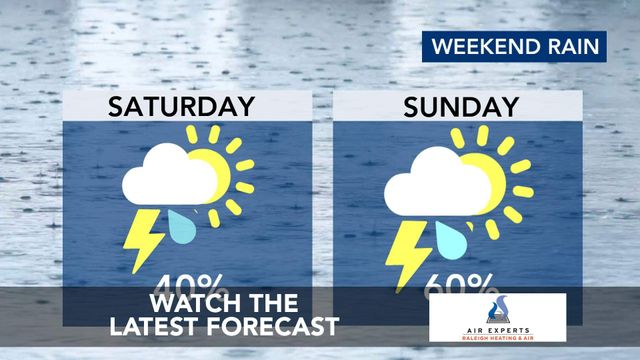$1 billion to fight opioid crisis: Nearly two dozen NC counties yet to spend funds
North Carolina is due to receive more than $1 billion in funding from a federal opioid settlement. The first part of that settlement arrived in county coffers during the 2022 fiscal year.
Almost two dozen counties in North Carolina have not touched their money, which is part of a $50 billion nationwide settlement that forces drugmakers and distributors to pay for their part in the opioid epidemic.
So far in 2024, more than 840 people have died from overdoses in North Carolina.
“When we think about the opioid settlement dollars, a lot of people had to die for these settlements to even happen in the first place,” said North Carolina Harm Reduction Coalition coordinator Elyse Powell.
North Carolina Harm Reduction Coalition is a nonprofit providing harm-reduction services across the state.
“For all 100 counties, I think that the best way to get dollars out both quickly and impactfully is to make sure that we are involving people with lived experience,” Powell said.
Of North Carolina’s 100 counties, 60 have initiatives in place. It includes Wake and Johnston counties.
Earlier this month, Wake County allocated $7.5 million to support strategies to address the ongoing opioid overdose crisis.
Over the next 18 years, Wake County will receive $65 million to fight the opioid crisis. Wake County commissioner Cheryl Stallings said last month the county has already received about $4.85 million.
According to Wake County leaders, 219 people died from overdoses in the county in 2022, the last full year of recorded data. That's about one person every 40 hours.
Data from the Raleigh Police Department shows 103 of those deaths -- nearly half -- occurred in Raleigh, making 2022 the city's most deadly year on record since police began tracking drug overdoses in 2015.
There are 23 counties, including Durham and Nash, that haven’t reported plans for their opioid settlement spending.
The 17 other counties, like Orange and Person, submitted plans currently under review.
Powell said she understands it’s urgent to get the funding distributed, but feels it is important the counties do it right. She’s hopeful that all the counties will use their funding to take a holistic approach and bolster social support for people who are living with substance-use disorder.
“I think it's very easy to talk about the opioid crisis in terms of the numbers,” Powell said. “We see the increases, but fundamentally, I care.
“I think all of us care because these are people. Right? They are our friends, our family. They're us. Right? And, I think fundamentally, we have to care about these people.”
Powell said when we see the whole person, she thinks that’s when change will come.
“So many of us in this line of work, have gotten one or many phone calls that have changed our lives forever,” Powell said. “My goal, what I hope to see how this work is to have fewer people have to experience those phone calls.
Several North Carolina are working to put plans in place on how to allocate funds.
From 10 a.m. to 3 p.m. Saturday, Orange County is having an opioid settlement community meeting at the Whitted Human Services Building at 300 W. Tryon Street in Hillsborough. Registration is free.
While dozens of counties don’t have any initiatives funded, Robeson County has 27 already in place.












